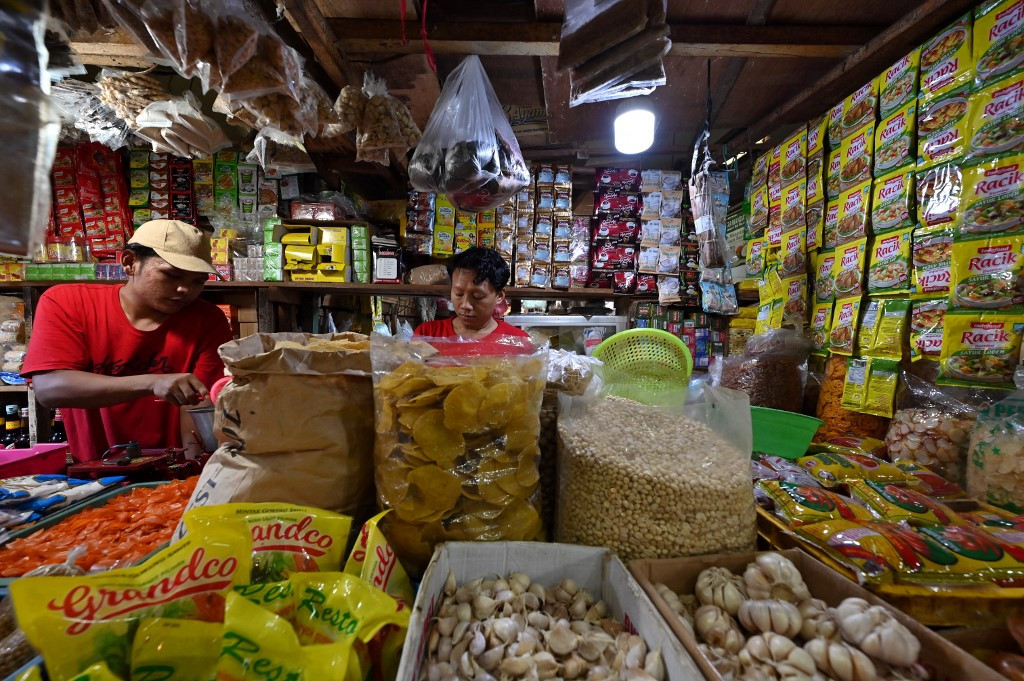Popular Reads
Top Results
Can't find what you're looking for?
View all search resultsPopular Reads
Top Results
Can't find what you're looking for?
View all search resultsThe surprising increase in policy rate amid stability and recovery
Controlling core inflation is the short-term target of the BI money tightening because headline and core inflations are expected to increase due to the second-round effect of the recent fuel price hikes.
Change text size
Gift Premium Articles
to Anyone
The Bank Indonesia (BI) Board of Governors decided at its monthly meeting last week to raise its policy rate (7-Day Reverse Repo Rate or 7-DRRR) by 50 basis points to 4.25 percent.
The 50 bps increase, higher than expected by most analysts who foresaw a gradual raise, seemed to match the 75 basis point hike made by the United States Federal Reserve earlier on Wednesday to fight inflation.
While the US experienced high inflation, another world-economy locomotive, China, was experiencing a slowdown. The reemergence of the C0VID-19 outbreak in China forced the government to lockdown several main production centers, resulting in production decrease and price increases.
European countries are threatened by the energy crisis because of the lack of gas supply from Russia. There have been worries about economic recession and high global inflation.
BI's decision to increase its policy rate can therefore be seen as a front-loaded, pre-emptive, and forward-looking step in addressing high global economic uncertainty. As an open economic system, Indonesia is certainly vulnerable to external factors. The rate hike is a monetary measure to reduce inflation expectations triggered by the dynamics of global-economic factors.
Controlling core inflation is the short-term target of the BI money tightening because headline and core inflations are expected to increase due to the second-round effect of the recent fuel price hikes.
The policy rate increase is also aimed at strengthening the exchange rate of the rupiah in line with its fundamental value, thereby curbing capital outflows from stocks and bonds and simultaneously attracting new capital flows to benefit from the wide interest-rate differentials.
Indonesia’s foreign reserves have decreased from US$144.9 billion at the end of 2021 to $132.2 billion in August.
The money-tightening policy, though it increases borrowing costs, is not too disruptive to economic recovery and growth. The economy is still expected to grow by 5.4 percent throughout this year, up significantly from 3.7 percent in 2021.
Given the uncertainty about the global economy and the escalating concerns about the bigger risks of economic recession, the policy-rate hike is also timely to anchor inflation expectations and the rupiah’s exchange rate in order to make them more predictable.
The predictability of inflation and exchange rates undoubtedly makes it easier for economic actors to make decisions. The producer's decision as regards its business is always tied to the prospect of selling prices and input prices.
Likewise, consumer behavior is always influenced by the condition of their purchasing power, which in turn is influenced by inflation and the exchange rate. The combination of producer and consumer activities determines economic growth.
Hence, the key to maintain stability (inflation and exchange rate) and economic recovery is the confidence of all economic actors. Eventually, stability and growth support each other.
***
The writer is a professor of economics at the School of Economics, Jakarta State University and the research director at the Socioeconomic & Educational Business Institute (SEEBI).











